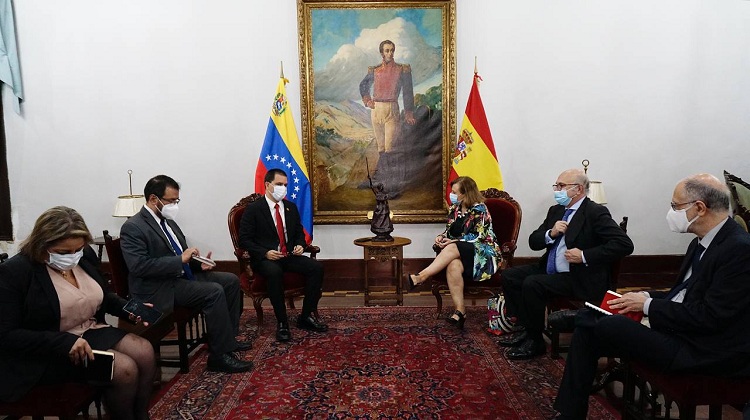The Diplomat
The Spanish government yesterday expressed its commitment to continue working to ensure that the agreement between the European Union and Mercosur is ratified soon, according to a note distributed by the Ministry of Foreign Affairs, on the 30th anniversary of the creation of the South American regional integration mechanism.
The Southern Common Market (Mercosur) was formed on 26 March 1991 by Argentina, Brazil, Paraguay and Uruguay. Venezuela joined in 2012, but at the end of 2016, it was decided to suspend it on the grounds that the Bolivarian regime did not meet the group’s criteria on trade, politics, democracy and human rights. Bolivia, for its part, is in the process of joining.
In the Foreign Ministry’s communiqué, it expresses to the members of Mercosur its ‘firm support for a regional integration process that has certainly contributed to the economic and social progress of countries with which Spain maintains the best relations’.
Spain stresses that, despite the difficulties that have arisen along the way, Mercosur has managed to advance during these thirty years in its objective of creating a common space for trade and investment opportunities, through the opening of national economies to a regional framework of their own and with the aim of a gradual opening to the outside world despite protectionist tendencies.
“Mercosur’s success is not only economic, but also political, as its four founding countries continue to promote democracy, the rule of law and the protection of human rights as their fundamental values”, it stresses.
The Spanish government then assures that it will continue to work for the prompt ratification of the Association Agreement between the European Union and Mercosur, which has taken more than two decades of detailed negotiation and which would mean the creation of one of the largest trading blocs on the planet.
“The Agreement is the best tool to create a strategic partnership between two regions with the same principles and values, in a context of the emergence of other projects that question these values or put them on the back burner,” says the communiqué.
All this,” it adds, “through the establishment of instruments that ensure equitable benefits for the citizens of both regions and adequate protection of the environment, sustainable development and labour rights”.







